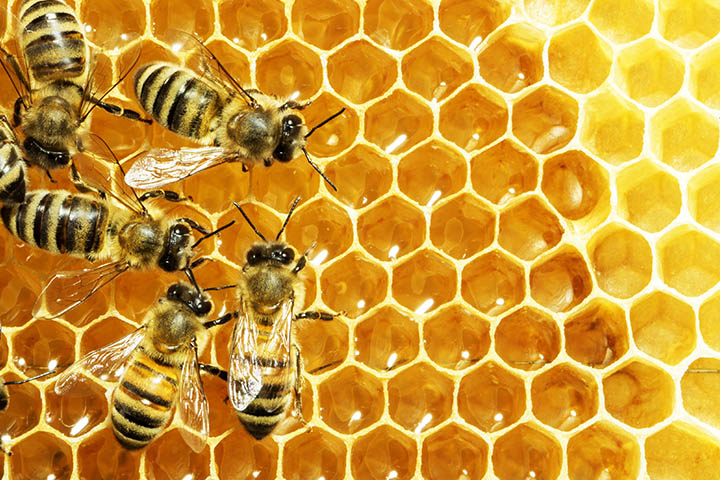As you may know, honey has no expiration date. More than 3,000-year-old honey jars that are still completely edible have been discovered by archaeologists in ancient Egyptian tombs!
Did you realize that a large number of our food sources depend on bees? Approximately one-third of the things we eat, such as fruits, vegetables, and nuts, are pollinated by them.
Were you aware that honey possesses inherent medicinal qualities? Because of its antimicrobial properties, it can aid in the relief of sore throats and even hasten the healing of burns and wounds.
It may surprise you to learn that bees only make a tiny quantity of honey in their lifespan. Together, worker bees generate a lot of honey; individually, they only make around 1/12 teaspoon of honey over their lifetime! Did you know that bees use dance as a form of communication? To let other bees know where to get the greatest blossoms, they engage in a "swing dance".
Honey has benefits for your brain, did you know that? Antioxidants included in it have the potential to enhance memory and promote brain health.
Did you realize that a lot of commonplace items include beeswax, which is produced by bees? It may be found in products like lip balms, candles, and various kinds of food packaging.
Honey has been shown to have natural energy-boosting properties. Because of its inherent sugars, it offers a rapid energy source.
It may surprise you to learn that there are more than 300 varieties of honey in the US alone. The flowers that the bees visit determine the flavor, color, and scent.Did you know that beekeeping benefits a lot of communities worldwide? It boosts food security in many areas, aids agriculture, and generates revenue.
It may surprise you to learn that honey functions as a natural preservative. Honey has been used for generations to preserve fruits and other foods because of its antimicrobial qualities.
A few bee species are capable of identifying human faces. According to studies, bees can distinguish between different flowers and human features via memory.
It's possible that honey might help you sleep better. Before going to bed, a spoonful of honey can help you relax and sleep better by enabling tryptophan to enter the brain and slightly raising insulin.
It's true that bees cannot distinguish the color red. While humans are unable to sense ultraviolet light, bees are able to see red, which humans view as black.
Honey may help alleviate seasonal allergies, did you know that? Some people think eating honey from the area will help build antibodies to local pollen and lessen allergy symptoms.
Did you know that all bee larvae are fed royal jelly, which is made by worker bees? But only the ones who are meant to be queens are given royal jelly as they grow.
Did you know that honey is used medicinally in many different cultures? For instance, honey was used to cure wounds in ancient Egypt and is utilized to treat digestive issues in Ayurvedic medicine.
As you may know, bees are equipped with a GPS system. They orient themselves and find their way back to the hive using the sun's position, the Earth's magnetic field, and their recollections of landmarks.
Were you aware that the only insects that humans eat for sustenance are honey bees? Since honey has been a mainstay of human diets for thousands of years, they are unique in producing it.
Were you aware that the flavor and texture of honey may differ significantly? The flavor, color, and consistency of honey are influenced by the kind of flowers the bees pollinate. There are even honeys that are creamy or spicy!

I'm going to keep this and read again. This is a lot to learn about honey.
Thanks for sharing
You welcome!
Ohh, I didn't know honey has no expiring date, learned something new today :D
☺️